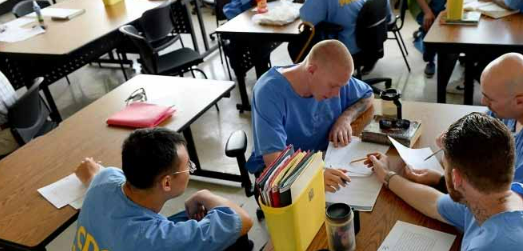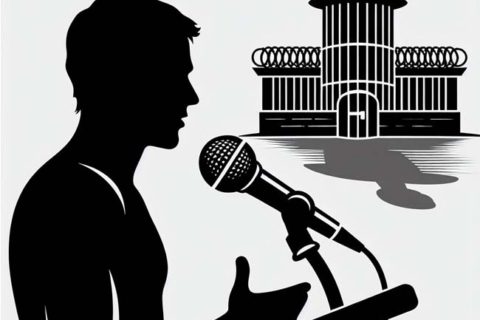Here we are going to share why prisoners should not get free education. Also, we are going to share cons of educating prisoners. For those who want to know that information, you should read this text until the end.
Why Prisoners Should Not Get Free Education?
Education will be able to change minds, teach people how to think better, and also how to find alternatives to the way they used to do things. But why should prisoners not get free education? Need to note that the information and knowledge which the prisoners get could also be used negatively. If someone is in prison because of a crime which involves deep knowledge and planning, giving them an education can only better their success rate if they select to commit a crime again.
Also, free education to the prisoners who will not be released is a waste of money. It makes sense to give educational options for people who might come back to society one day. There is 5 percent of the prison population who involve death row inmates or people who are serving life sentences for their conduct. Giving this latter group of people a free education does not benefit society much because they have no way to make a societal benefit. Many of these individuals are not allowed to leave their cells except for the one hour per day mandated by laws or regulations.
If a teacher gives instructions to the prisoners through the bars without the ability to use the knowledge they get, then what is the point of the expense? That person will still be in prison with limited contact to the outside world.

Some Cons of Educating Prisoners
Here are some cons of educating prisoners:
- Prison education programs may place educators at risk of harm.
There are the instructors and professors who take time out of their schedule to work with local prison education programs. Several of these teachers are paid for their services. But there are other teachers who do not receive any compensation. If their inmate students are not carefully watched while they give a lesson, then these educators can be in serious danger without realizing what is occurring.
It means that correctional officers and prison administrators are taking time out of their day to support a free education instead of managing their facility. Successful graduates are able to improve their communities upon release, but those who do not complete their classes can go in a different direction.
- Prisoners can use classroom information to their personal benefit in negative ways.
The knowledge and information taught during education classes can be used in negative ways. Giving individuals with advanced lessons on planning, foresight, or coding can make them more effective at breaking the law. Those individuals may graduate successfully from their program, but it may also lower recidivism rates as law enforcement can no longer detect their criminal conduct. If education programs are successful, then a curriculum which fits outside of the conduct profile of the inmate is the choice to consider instead of a generalized choice.
- Prisoners do not have access to modern technology for their learning needs.
There are specific challenges which prison educational programs face when they are instituting a program. It is only 14% of the students enrolled in a prison program have the chances to access a restricted Internet presence. Also, that figure represents the number of people who are given the choice to coordinate with a large-scale program. Providing the prisoners access to online features can make untold dangers in several situations which place the safety of the general public at risk. Until there is a way to solve this problem, the effectiveness of an educational program will be questioned.
- It needs a significant amount of capital to get started.
Once the federal government deleted almost all of the funding for prison education programs, non-profit agencies stepped up to keep providing this service. Most governments do not want to invest in their prisoners in the same way. When Governor Andrew Cuomo created changes to the educational structures of prisons in New York State, it needed an award of more than $7 million to institutions like Cornell University to offer in-prison classes.
- Prisons have to reduce their recidivism rate to create educational programs profitable.
Based on the research, correctional education programs have to reach a specific recidivism rate reduction to become a cost-effective resource. The break-even number varies for each institution, however the average amount it needs to lower is 1.9 to 2.6% points over a three-year examination period. Also, RAND found that if these successes became available, then a prisoner with an education was 13% more likely to find employment. If those rates were not present, then lots of the expected benefits of this program disappeared.
- It makes a disparity between those who make a good choice and those who don’t.
Students work hard to get a college education. It is not fair if someone receives it for free, particularly if they do not truly want or appreciate it. Now, people argue about the temptations which society must face and overcome. In these hard times, it is hard to be a well-rounded individual. Several students who want to go to college get rejected as their grades are not good enough. Other students do not have the money to pay for classes, and they do not want to have substantial student debt to manage afterward. Allowing someone who broke the law to obtain a benefit that those who keep the rules do not receive does send the wrong message to several people about society’s priorities.
- Educators lose the right to set the rules for the classroom.
The teachers and faculty make their classroom environment on campus or at their school. The class’s rules are dictated by the instructor. When you walk into a prison, then the educators will lose control over those things. You do not even have the choice to communicate with the students at any time during the day or night. The educators experience consistent interruptions from the correctional officers who supervise the classroom. Even the students come into or leave the class in ways which are unexpected. It causes a lot of hassles which some people are not willing to accept.

A bookworm and researcher especially related to law and citizenship education. I spend time every day in front of the internet and the campus library.




